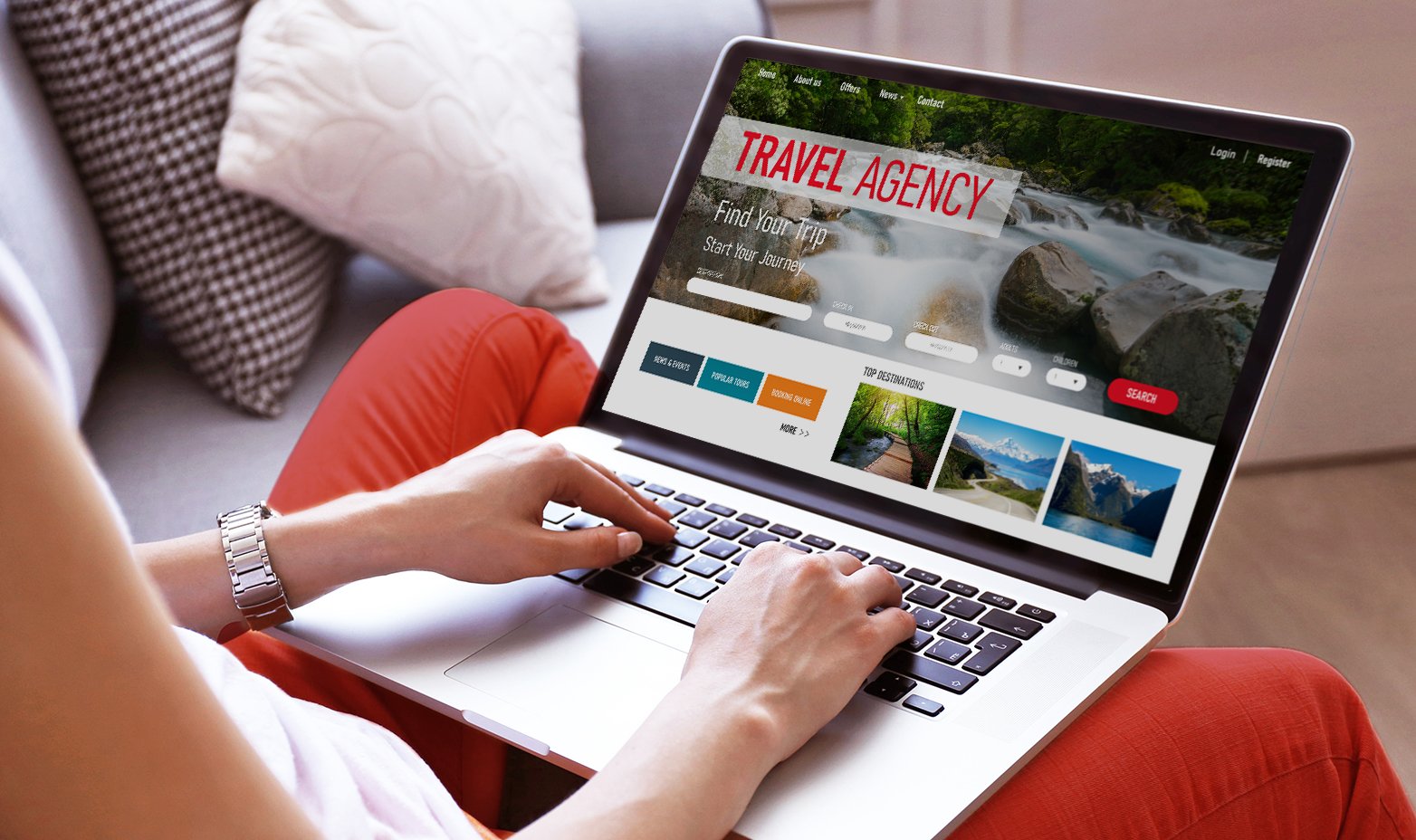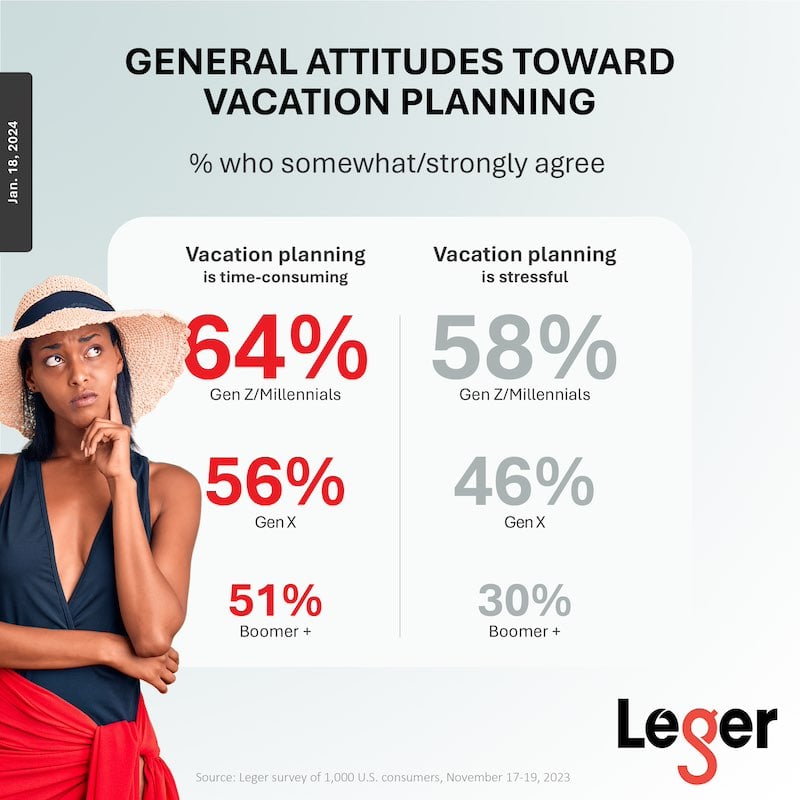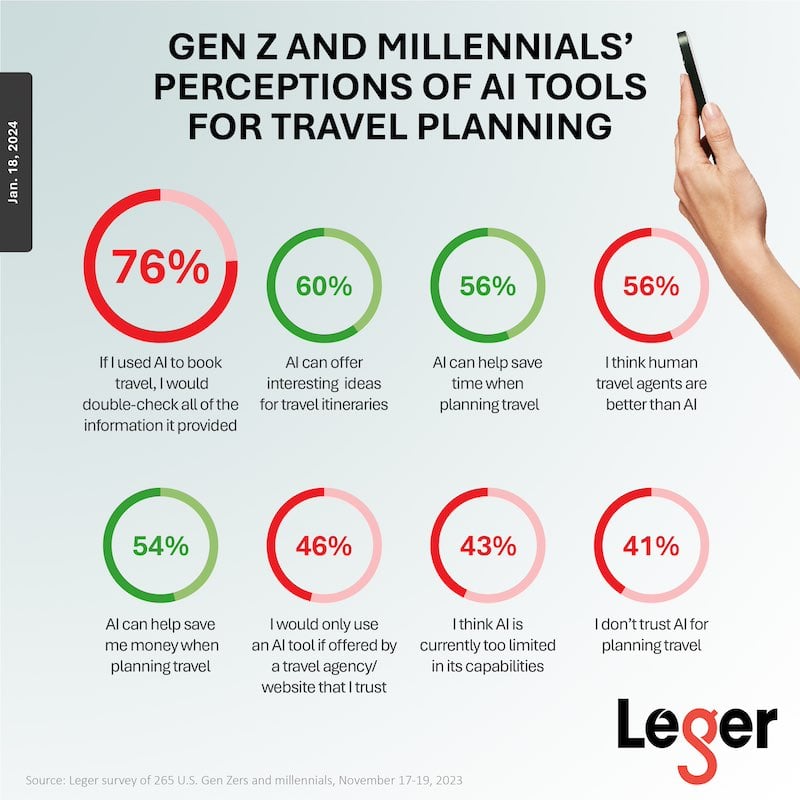With the explosion of tools like ChatGPT, generative artificial intelligence has taken the world by storm. AI can help automate time-consuming, tedious, and taxing tasks ranging from customer service support to writing college admissions essays and everything in between. AI has applicability in virtually any industry, including a sector that is heavily rebounding post-pandemic: travel & tourism.
Several new travel AI tools for planning hit the market this year, including TripGenie and Roam Around. In addition, major travel brands like Expedia and Kayak were among the first plugins ChatGPT launched. These tools are designed to customize travel routes, itineraries, and travel booking advice in real-time, communicate with hotels, draft travel budgets, and even function as a personal travel assistant. But how do consumers perceive travel AI tools, and do they trust them?
Our latest report, U.S. Travel Insights: AI Tools for Vacation Planning/Booking, explores consumer perceptions of AI tools and whether these tools can alleviate the time, expense and strain of travel planning in 2024 and beyond.
Read on to see what the survey results mean for travel & tourism brands looking to meet their customers’ needs better.
Gen Z and Millennials find vacation planning cumbersome
When it comes to sentiments about vacation planning, distinct differences exist among the younger and older generations of U.S. consumers.
Planning a vacation is perceived as time-consuming and stressful, particularly for the younger generations. Gen Z and millennials are likelier to report that planning is time-consuming, 64%, and stressful, 58%. On the other hand, a lesser proportion of Boomers and older generations report these factors while planning, at 51% and 30%, respectively.
Travel & tourism brands should be mindful of how younger and older consumers’ pain points differ when developing strategies to reach these audiences.
Gen Z and millennials see some benefits to using AI tools, but take the information provided with a grain of salt
When considering how travel and AI tools fit into their lives, Gen Zers and millennials are not willing to take the information provided by AI tools at face value. More than three-quarters (76%) say that if they used AI to book travel, they’d double-check all the information it provided.
While more than half of Gen Zers and millennials think AI can offer interesting itinerary ideas (60%) and help them save time (56%) and money (54%) when planning travel, brands should be mindful of the extra time consumers may need to double check the information AI tools provide if they are considering highlighting time savings in their marketing materials.
While AI can be useful, a human touch is also valued. 56% of Gen Zers and millennials think human travel agents are better than AI. Trust is also important: 46% of Gen Zers and millennials say they would only use an AI tool if it were offered by a travel agency/website they trust, and 41% don’t trust AI for planning travel at all.
Implications for travel & tourism brands
Understanding how Gen Z and millennial consumers (and other consumers at large) feel about and participate in planning and booking trips means travel & tourism brands can better tailor their messaging and offers. Travel & tourism brands that are considering how to incorporate AI into their offering (or enhance what they already offer) must be mindful of consumers’ concerns and preferences to effectively address their pain points and highlight the features that matter most to them.
In addition, travel agencies and agents may benefit from highlighting the added value and trustworthiness a human travel agent provides (while keeping in mind that travel AI tools are likely here to stay).
For more information on the concerns all generations have toward using travel AI tools for their trip planning, download our full report.
Leger can help travel & tourism brands determine how to think about AI and their consumers
We have extensive experience with all facets of the travel & tourism industry, including business travel, tourism, the luxury travel market, and more. We use our deep industry expertise and proprietary travel & tourism online research community to provide rapid, responsive travel market research solutions tailored to each brand’s unique needs.
Contact us today to speak with our research experts.





